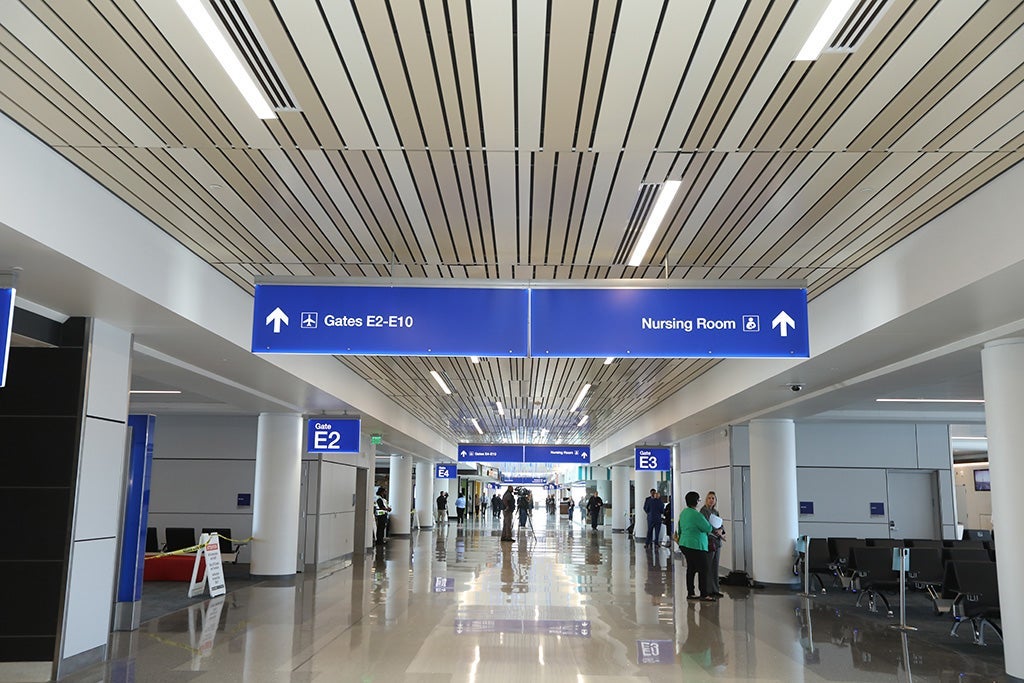@Murdoughnut your thoughts on this? I remember you saying the issues the concession management is having and their inability to understand they need to change how they have been managing at your airport.
Phoenix Sky Harbor International Airport (PHX) is going to start enforcing hours of operation for its retailers. Shops, along with restaurants and other food and beverage locations could face fines if they are not open when they're supposed to be.

thepointsguy.com
As you might imagine, the problems hourly wage employers have faced in finding/keeping staff are felt more so by airport concessionaires. Historically airport concessionaires have paid a small premium for those working at airports - to the tune of $0.50-$1.00. For retail and casual/QSR dining employees, airports have the benefit of a "better than average" clientele and a reduced likelihood of being robbed or murdered on the job. On the downside, most drive past similar establishments on their way to work, and getting from your car, past security and to your job and back is at least 0.5-1.0 hours extra you're not being paid for. Interestingly bartenders are easier to come by since airports are one of the few places without norms of when you can start drinking, and because people traveling on per diem tip well.
Most airport authorities take a cut off of concessionaire sales - typically 10-15% with a minimum revenue guarantee. Overall concessions operations (including leases) account for roughly a quarter of an average airport's total annual revenue. Right now concessions supply isn't meeting demand, and airport authority's are seeing concessions revenue growth lagging pax volumes. Parking revenues are also down (parking is typically the single largest revenue generator for an airport at around 30-35%) because premium parking products utilized by business travelers are down with fewer business travelers on the road to expense such charges to clients.
If I had one thing I could leave with anyone wanting to understand the airport industry it's this: Airport directors are politicians, and any political scientist will tell you that the primary purpose of any politician is survival. Boards are getting antsy as revenue per enplaned pax continues to stagnate, particularly as many of these airports are in the midst of large capital development plans (construction), so airport directors are looking to deflect blame. Easy to point a finger at concessionaires who can't fulfill their operational agreements. At the beginning of the pandemic many airports gave concessionaires a pass - even waiving fees, as how could they blame them for suffering when there were no pax? Now that pax are back, airports aren't having any of it. I think a lot of these fees are designed to get the concessionaire to voluntarily opt out of their agreements, rather than the airport having to engage in a costly process of kicking them out.
My boss at RDU, who was a concessions guy by trade, incorporated ghost kitchens and mobile ordering/delivery as a possible solution. Walk up to a kiosk where you can order lunch from one of several branded restaurants. There's only one kitchen behind the wall and no front of house staff, allowing them to pay kitchen staff more. Food is placed in a locker and you use your code to grab it when it's done.
Airport concessions is tricky right now - you have to pay the airport before you can pay yourself. You're also subject to agreements that were likely made before any of this happened. Some airports have thrown those out or modified these as economics works against airports and concessionaires, but some haven't. Some want to rid themselves of existing concessionaire agreements to incorporate a new or modified model. These fines are probably one way of doing it.
The best/longest term concessions employees at airports really do like working in an airport - that's usually what keeps them there. But finding those diamonds in a rough in an increasingly limited labor pool is tricky.

 thepointsguy.com
thepointsguy.com


